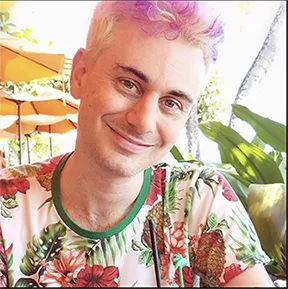
Speaker: Jason Weston, Meta AI
Title: A journey from ML and NNs to NLP and Beyond: Just more of the same isn't enough?
Date: Friday, November 18, 2022 - 1:30 - 2:30 PM EST (North American Eastern Standard Time) via Zoom. On campus attendees will gather in CS 151 to view the presentation.
Abstract: The first half of the talk will look back on the last two decades of machine learning, neural network and natural language processing research for dialogue, through my personal lens, to discuss the advances that have been made and the circumstances in which they happened -- to try to give clues of what we should be working on for the future. The second half will dive deeper into some current first steps in those future directions, in particular trying to fix the problems of neural generative models to enable deeper reasoning with short and long-term coherence, and to ground such dialogue agents to an environment where they can act and learn. We will argue that just scaling up current techniques, while a worthy investigation, will not be enough to solve these problems.
Bio: Bio: Jason Weston is a research scientist at Meta AI, USA and a Visiting Research Professor at NYU. He earned his PhD in machine learning at Royal Holloway, University of London and at AT&T Research in Red Bank, NJ (advisors: Alex Gammerman, Volodya Vovk and Vladimir Vapnik) in 2000. From 2000 to 2001, he was a researcher at Biowulf technologies. From 2002 to 2003 he was a research scientist at the Max Planck Institute for Biological Cybernetics, Tuebingen, Germany. From 2003 to 2009 he was a research staff member at NEC Labs America, Princeton. From 2009 to 2014 he was a research scientist at Google, NY. His interests lie in statistical machine learning, with a focus on reasoning, memory, perception, interaction and communication. Jason has published over 100 papers, including best paper awards at ICML and ECML, and a Test of Time Award for his work "A Unified Architecture for Natural Language Processing: Deep Neural Networks with Multitask Learning", ICML 2008 (with Ronan Collobert). He was part of the YouTube team that won a National Academy of Television Arts & Sciences Emmy Award for Technology and Engineering for Personalized Recommendation Engines for Video Discovery. He was listed as the 16th most influential machine learning scholar at AMiner and one of the top 50 authors in Computer Science in Science.
